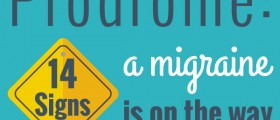
Anxiety disorders can be treated by homeopathic remedies. A person should take two tablets every 2 to 4 hours of such remedies, and once there is a noticeable improvement, intervals between dosages should be increased. Remedies should be taken with a clean mouth and should be dissolved in the mouth rather than swallowed. Patient should not ingest anything but water for fifteen minutes after the remedy has been taken.
Aconite is used when a sudden panic attack comes on, combined by a very strong sense of fear. Fever, painful urination, eye pain, headaches, thirst and dizziness are among the most common symptoms connected to aconite.
Argentum nitricum is most appropriate when anxiety kicks in before some big, important event such as a job interview, an exam or social engagement. Dizziness, diarrhea and craving for strong flavors, combined with a tendency towards impulsive and emotional behavior, indicate this kind of panic attack.
Arsenicum album is recommended for people anxious about their health, sometimes having asthma attacks combined with anxiety. These people are also usually very obsessive about order, security, control and small details. Attacks usually take place around midnight or in the early morning. Symptoms include fear of suffocation, irritation, restlessness, thirst, sensitivity to the cold, insomnia, vomiting, and insomnia combined with sleepiness.
Calcarea carbonica is for people who are usually always cold and have a very hard time keeping warm. They crave sweets usually and bad news and worries usually agitate them. Some symptoms are insatiable hunger, light-sensitive eyes, a pale complexion, sweating, dizziness and cold feet and hands.
Indications for gelsemium are fear of crowds, fear of falling, fear of heart failure, stage fright and paralysis from fear. A sore throat, fatigue and heavy limbs are among other symptoms.
Ignatia amara usually helps persons stricken with disappointment and loss. Emotional stress and constant mood swings are common. Terrible headaches, sensitive skin, feverish chills, hunger intensified by eating and insomnia are the most common symptoms.
Kali phosphoricum is for persons exhausted by working too much or being ill for long periods of time. Exhaustion, headaches and irritation by ordinary sounds usually describe this type of anxiety.
Lycopodium patients suffer from a lack of confidence and usually pretend to be something they are not. Fear of failure is always present. Claustrophobia, irritability, coughing, digestive problems and increased cravings for food are common.
Natrum muriaticum is for socially conscious, altruistic people, who still succumb to isolation. Anger, grief, depression, nervousness, insomnia, headaches and excessive crying are signs of this condition.
Phosphorus is for strong anxiety triggers cause by thinking about almost anything. Cough, thirst, nausea and night sweats are common.
Pulsatilla is for people who expect constant support and comforting and are afraid of being alone. Insomnia, heat sensitivity, lack of thirst, coughing and menstrual period delays are some of the symptoms.
Silicea is for capable and serious, but also shy and nervous people who suffer from temporary losses of confidence. Headaches and oversensitivity usually kick in easily in these cases.
















Your thoughts on this
Loading...